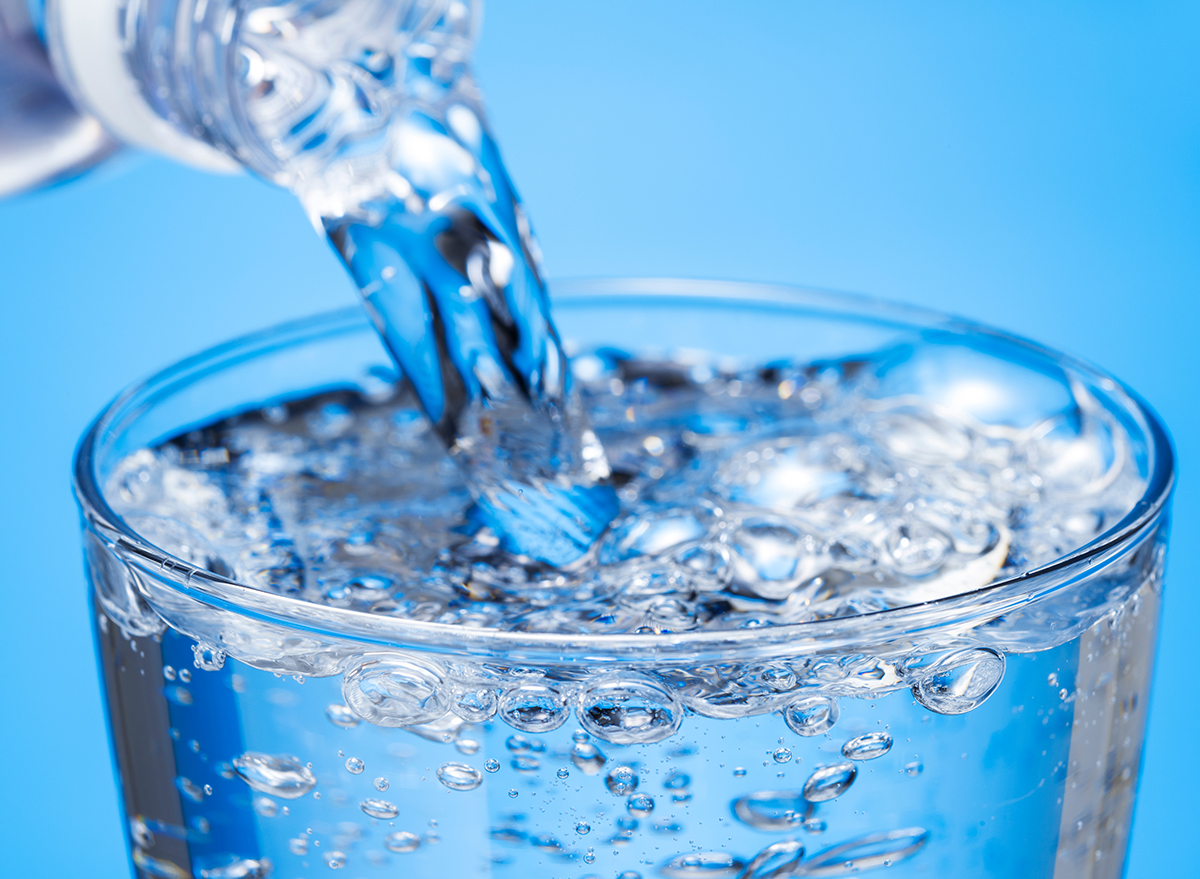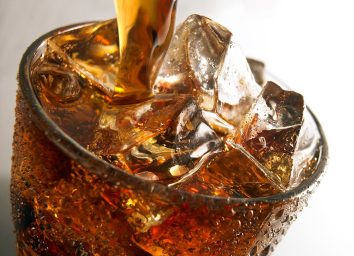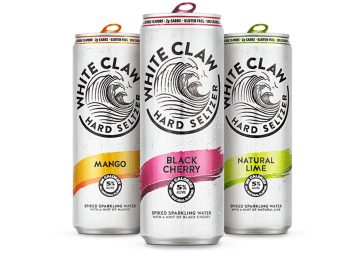Is Carbonated Water Really a Better Alternative Drink?

Unlike matcha and kombucha, carbonated water has been on people's radars for…well, a while. Now though, brands are reinventing the old school sip with healthy ingredients like real squeezed fruit instead of "natural flavors." But is carbonated water all it's cracked up to be? Is it a better option than soda? Overall, is carbonated water bad for you?
We tapped an expert to learn more about carbonated water—what it is, how it stacks up to plain old H2O, and whether it helps or hurts digestion.
What is carbonated water?
Seltzer water. Sparkling water. Club soda. Carbonating can get confusing. Let's break it down. Seltzer water is plain water that gets carbonated with the addition of carbon dioxide. That's it! Sparkling water is water that naturally contains minerals (think salt, sulfur) and is either inherently carbonated or made fizzy with the addition of carbon dioxide. Club soda, on the other hand, is plain water that has been carbonated with carbon dioxide and contains additional ingredients, like sodium bicarbonate and potassium sulfate. Seltzer water and club soda are usually consumed straight-up or added to other drinks, like cocktails. Sparkling water is mostly sipped solo, and it's basically just carbonated water with some flavoring.
If club soda and sparkling waters contain minerals, does that mean they're healthier than regular water or seltzer?
Not quite. "The amounts of minerals are negligible, and club soda can contain 75 milligrams of sodium per 12 ounces," notes Cynthia Sass, RD, CSSD, a New York City- and Los Angeles-based performance nutritionist. "That's about 3 percent of the recommended maximum for healthy adults."
What makes carbonated water healthy then?
Just like water, it's hydrating and counts toward your overall fluid intake. It also may be beneficial for weight control. "Carbonated water has been shown to increase the feeling of fullness after meals more than plain water and delay stomach emptying, extending fullness," says Sass.
Research suggests that the bubbly beverage could also help ease constipation. One study published in the European Journal of Gastroenterology & Hepatology found that carbonated water consumption improved indigestion and constipation in patients who regularly experienced GI discomfort compared to tap water.
What are the drawbacks to carbonated water?
Water and CO2 combine to form carbonic acid, which means carbonated water is acidic. The result? High consumption could potentially contribute to issues like dental erosion and acid reflux in certain individuals.
Research from the Birmingham Dental Hospital and School of Dentistry in England, for example, found that prolonged exposure to flavored sparkling waters adversely affected the surface of teeth.
The acidic nature of carbonated water can also pose problems for those prone to acid reflux. Why? Well, once bubbles enter the stomach, they expand and can increase the amount of pressure put on the lower esophageal sphincter, aka the muscles connecting the esophagus to the stomach. The added pressure can force stomach acids to creep back into the esophagus, potentially intensifying reflux symptoms. If you suffer from the digestive disorder, opt for flat water instead.
Also good to know: Contrary to popular belief, drinking carbonated beverages has been proven not to decrease bone mineral density.
What are the best types of carbonated waters to drink?
"I recommend pre-flavored carbonated waters or plain ones with a splash of 100 percent fruit juice or other whole food add-ins, like fresh mint, ginger root, cucumber, or a bit of mashed fruit," says Sass.
If you're buying pre-flavored varieties, remember to mind the ingredients list. "Sparkling waters made with natural flavors may contain questionably derived 'incidental additives' in their formulation, which manufacturers are not required to disclose," adds Sass. "For this reason, I lean toward plain [seltzer water] with DIY flavors added or brands with a lot of transparency about their ingredients and sourcing."
How much is too much carbonated water?
Basically, exclusively drinking carbonated water isn't advised. "It would be difficult if not impossible to drink only carbonated water without experiencing some GI distress, if you're drinking enough of it," says Sass.
But there really is no hard cap on how much carbonated water you should drink each day. Instead, simply listen to your body. If you experience IBS or other chronic digestive issues (or find you're sensitive to carbonated beverages), take a break from the bubbles and switch to flat water for at least three to five days.
"I ask clients to monitor total fluid consumption," says Sass. "I generally recommend drinking 64 ounces spread out throughout the day, either all as flat or a combo of flat and carbonated. But if drinking carbonated results in you drinking less, I advise cutting back and making carbonated drinks occasional treats."








